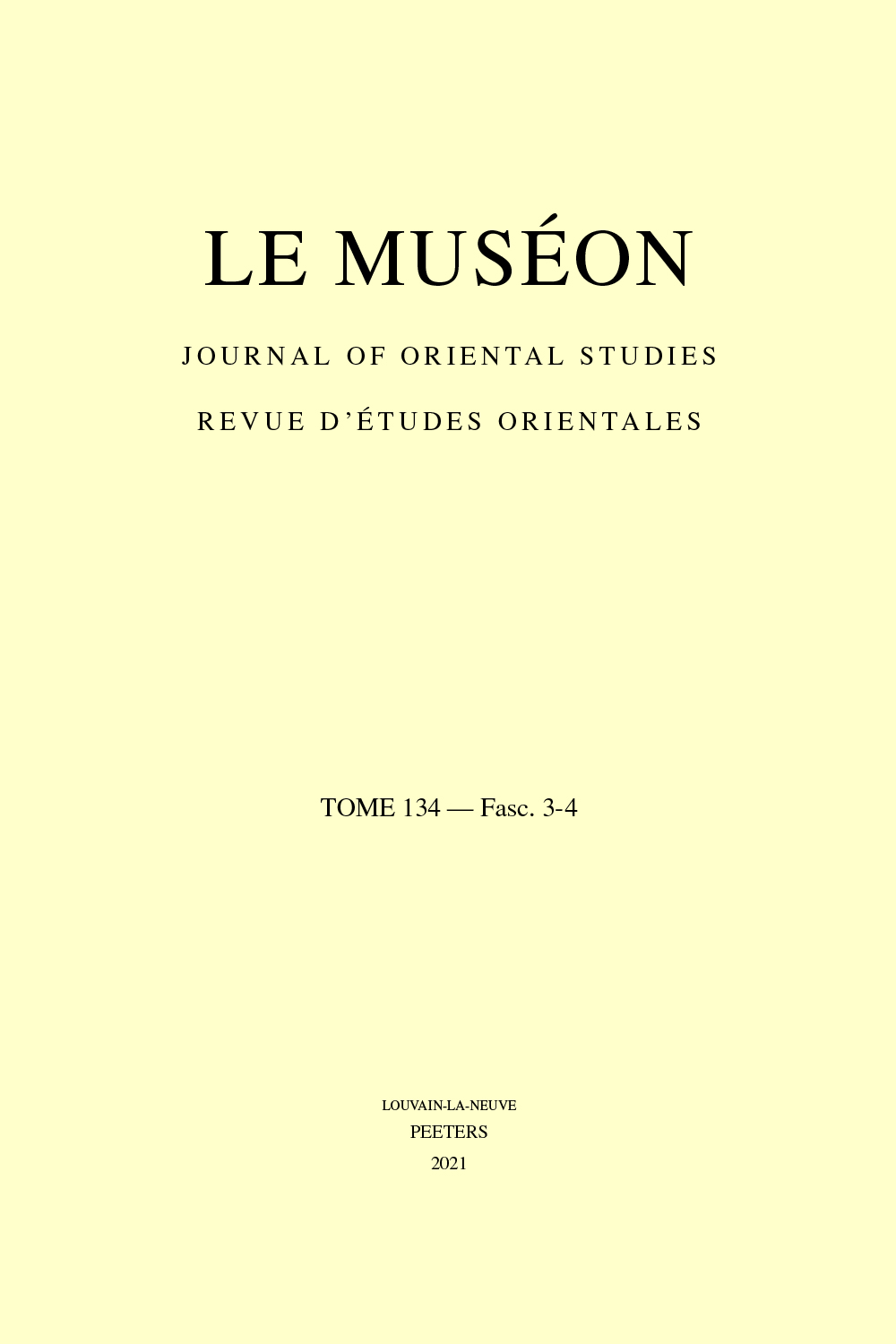 previous article in this issue previous article in this issue | next article in this issue  |

Preview first page |
Document Details : Title: Ikhwân al-Safâ, Sur les limites du savoir humain Subtitle: Présentation et traduction de l'Épître XXVIII des Frères de la Pureté Author(s): DE CALLATAY, G. Journal: Le Muséon Volume: 116 Issue: 3-4 Date: 2003 Pages: 479-503 DOI: 10.2143/MUS.116.3.504169 Abstract : Epistle XXVIII of the Rasâ'il Ikhwân al-Safâ' (Brethren of Purity, 10th Century AD) is dedicated to the limits of human knowledge. This epistle, which is part of the second section (“On physical and corporeal sciences”), may qualify as a treatise of epistemology in its own right, as it tackles such typical questions as innate versus acquired knowledge, or, more originally, the somehow mean position of man with respect to the rest of the “knowing creatures” in the universe. It is also the place for a vehement admonition against the excess of free-thinking as well as a strong appeal to reconcile, wherever possible, the noblest achievements of ancient philosophy with the divine truth as revealed by the sacred texts. The French transation to be found here — the first of the epistle into any European language — is given with a few notes as well as with a brief overall presentation. |
|


